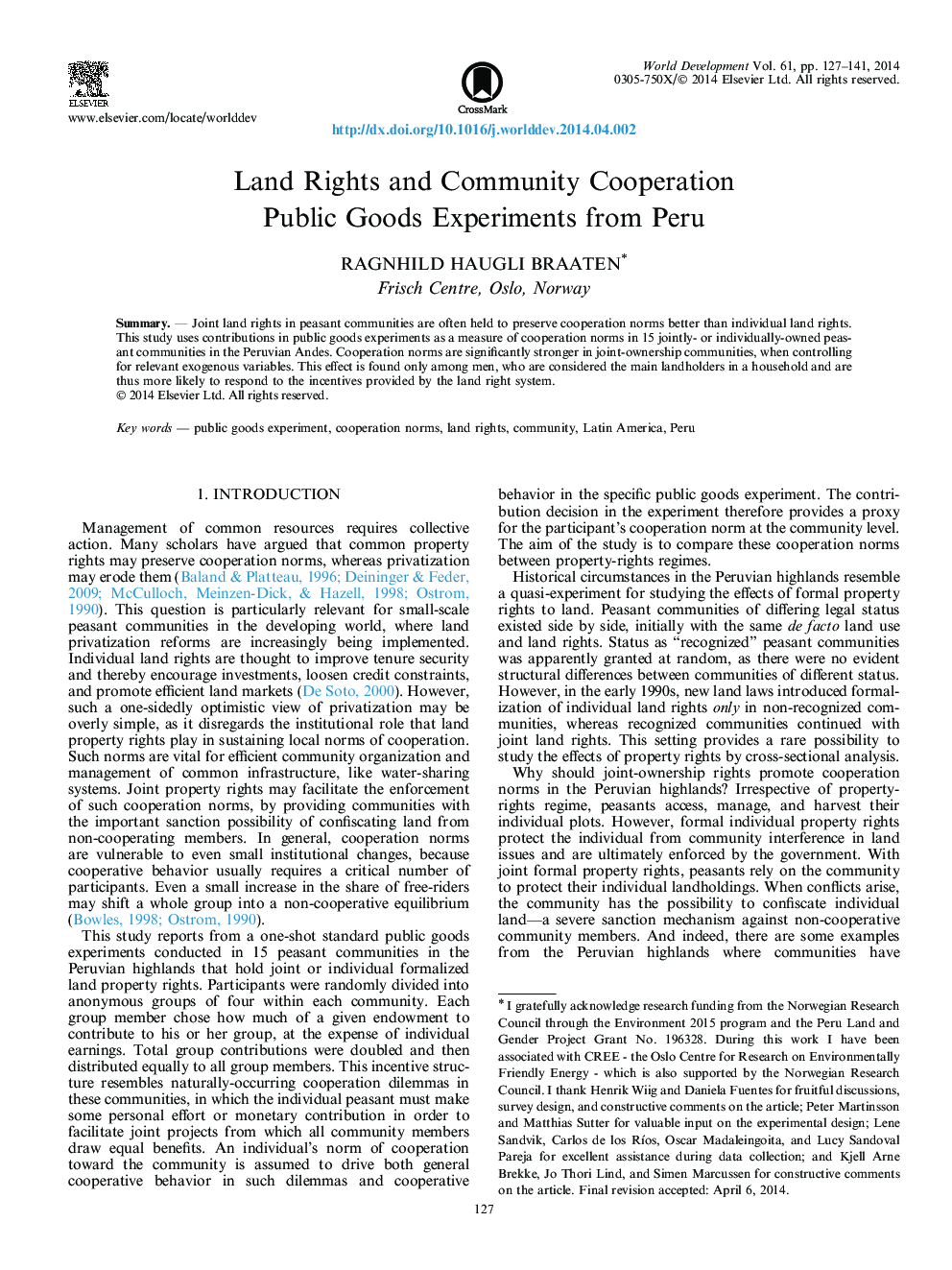| Article ID | Journal | Published Year | Pages | File Type |
|---|---|---|---|---|
| 7395129 | World Development | 2014 | 15 Pages |
Abstract
Joint land rights in peasant communities are often held to preserve cooperation norms better than individual land rights. This study uses contributions in public goods experiments as a measure of cooperation norms in 15 jointly- or individually-owned peasant communities in the Peruvian Andes. Cooperation norms are significantly stronger in joint-ownership communities, when controlling for relevant exogenous variables. This effect is found only among men, who are considered the main landholders in a household and are thus more likely to respond to the incentives provided by the land right system.
Related Topics
Social Sciences and Humanities
Economics, Econometrics and Finance
Economics and Econometrics
Authors
Ragnhild Haugli Braaten,
